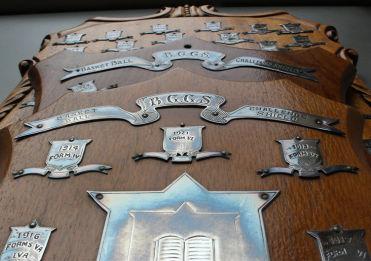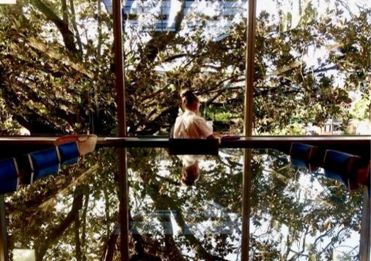Gwen Harwood’s name rings loudly across the landscape of Australian poetry. She has been celebrated as one of the nation’s greatest poets, with a plethora of accolades to her name. Her voice has always been bold and forthright, especially as it pertains to women’s lives, and while she is a giant of Australian literature, Gwen Harwood AO (Foster, 1937) is also a Grammar woman whose work and ideas endure in our classrooms and culture.
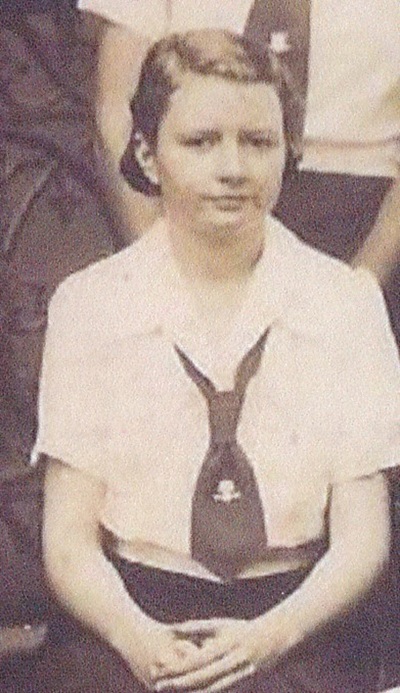
1937 Gwen Foster in Prefects photograph
In the 1975 School Magazine, Harwood wrote from Tasmania to celebrate the life of her teacher Miss Lexie Macmillan—another woman of substance whose memory endures through the annual awarding of the School’s Mary Alexis Macmillan Prize for Lyric And Poetry.
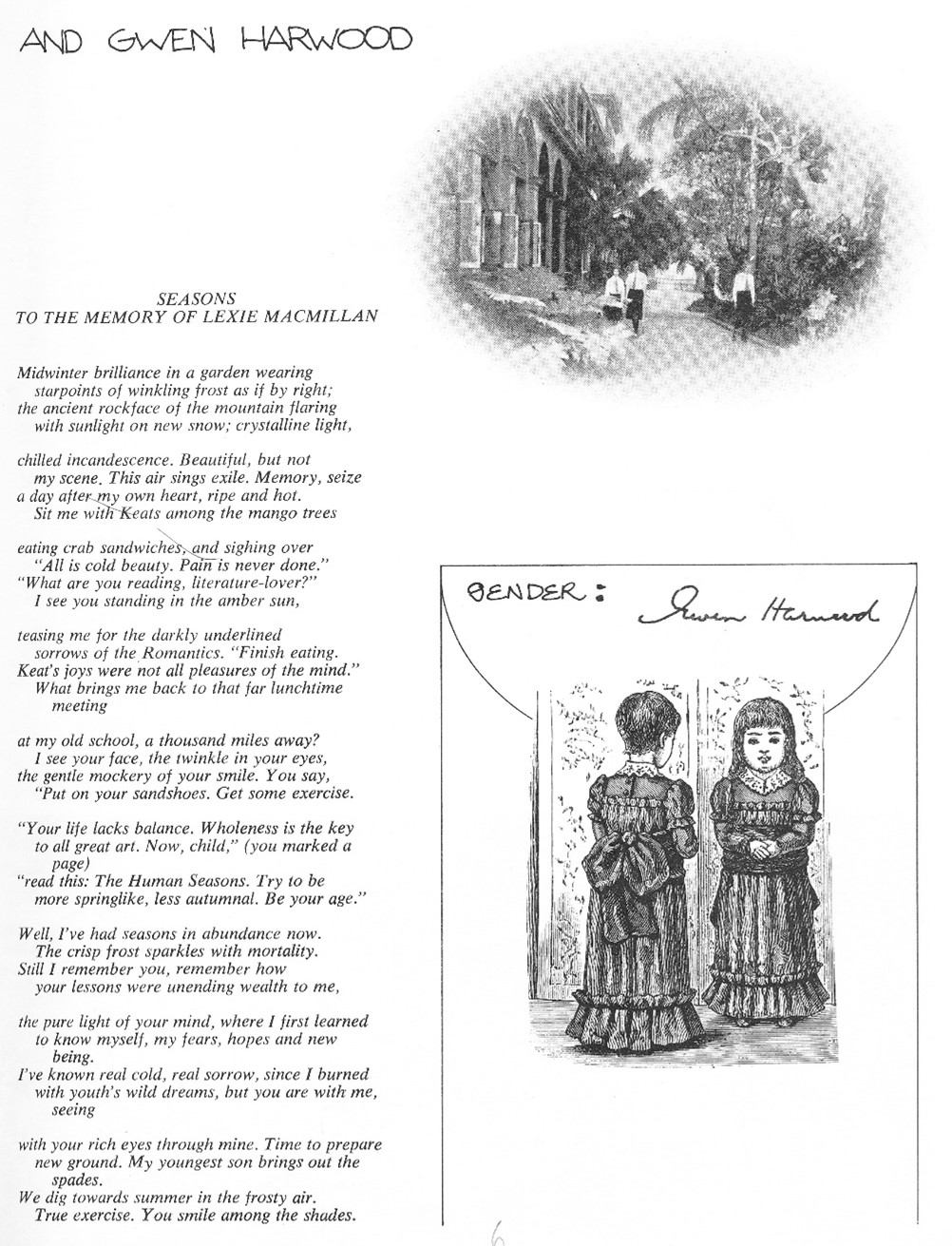
1975 School Magazine
The poem’s title, Seasons, To the Memory of Lexi Macmillan, gestures towards the great respect Harwood felt for the teacher who instilled her love of literature. Harwood provides a genial recollection of her time at school when she sat ‘among the mango trees eating crab sandwiches’. While mango trees have given way to younger flora, and chicken nuggets are now the lunch of choice, Harwood’s depiction of her teacher’s affectionate advice that ‘your life lacks balance-—wholeness is key’ is still mirrored today. Girls Grammar has always encouraged the development of the whole person—the academic, the sporting, the creative, the giving—through support and passion. The warmth in the elegy also reflects the connection that many Grammar Girls feel long after they move beyond the white picket fence.
Interestingly, the publication of Harwood’s poem in the magazine also includes a picture of the envelope sent with the poem, showing—depending on your perspective—an image of an older woman looking at her younger self in the mirror (though perhaps it is the other way around). Whether this image is designed to represent Harwood or her teacher is unclear, but the intrinsic links to the themes of recognition that appear in the poem are apparent.
Harwood’s memory appears elsewhere in the magazine too. In a 1992 interview she tells us: ‘I was pretty unremarkable at school.’ Despite Harwood’s self-assessment, her work also appears in the 1937 magazine—her graduating year—through her work that won the Woolcock Essay Prize. There are other small samples of her juvenilia, too—perhaps her classwork or simple acts of creative expression.
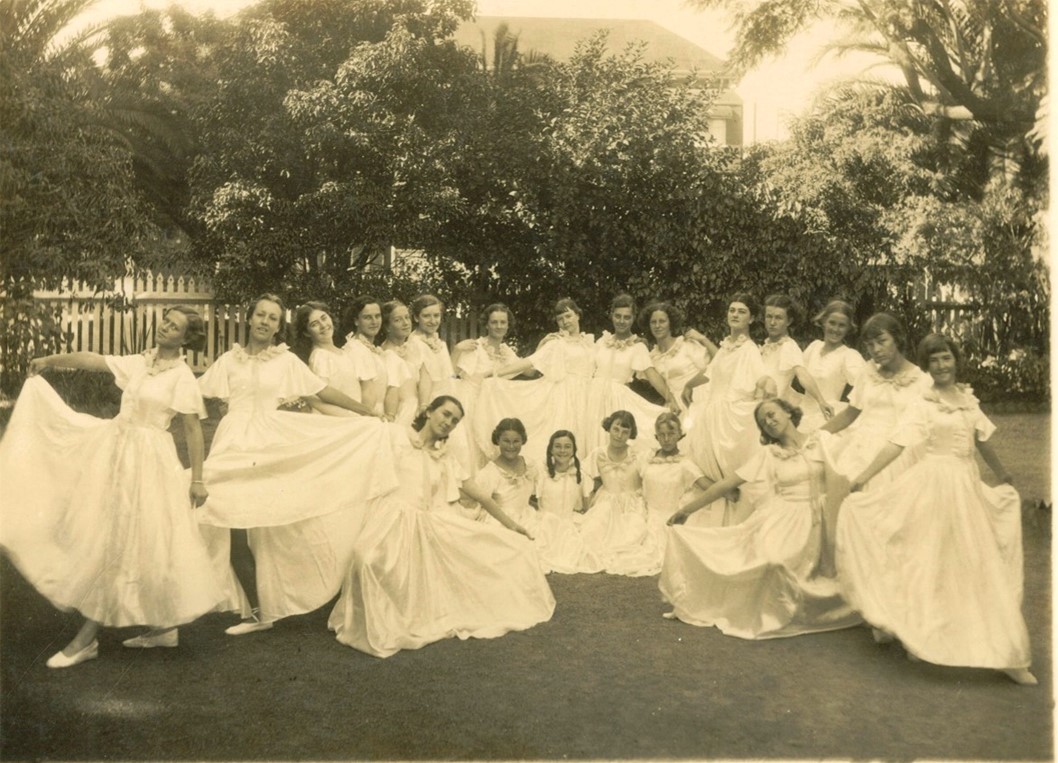
1935 Pas de Valse. Gwen Foster (centre, back)
These days, we find reflections of Harwood and her love of literature throughout the School. The Gwen Harwood Club, fondly known as ‘Gwennies’, was founded in 2005 by current English teacher Mr Rick Laur as ‘a creative writing group for students interested in expressing themselves through poetry, prose or drama’. The group has seen many changes since its creation, but the mission remains the same, and like-minded students meet weekly for literary discussions and to practise their skills.
Within our classrooms, Harwood makes an appearance in the Senior Literature program. Year 12 Litterateurs study her poems to analyse her choices and ultimately create their own creative piece. The girls take great interest in Harwood’s representations of women. Each year the girls find new and exciting ways to bring the poems to life to create their representations of women in the world. Like Harwood, they find endless opportunity to recognise themselves and their place in the world through their creative writing.
While Harwood’s Seasons might appear as a small piece in the magazine, it serves as a reminder of the powerful and lasting legacy of a Girls Grammar Education.
Meghan Parry
Head of Subject—Literature
References:
1937 Brisbane Girls Grammar School Magazine
1975 Brisbane Girls Grammar School Magazine
1992 Brisbane Girls Grammar School Magazine
Porter, Peter Satires in C major. Times Literary Supplement, 07/05/2003

Gwen Harwood’s signed poem
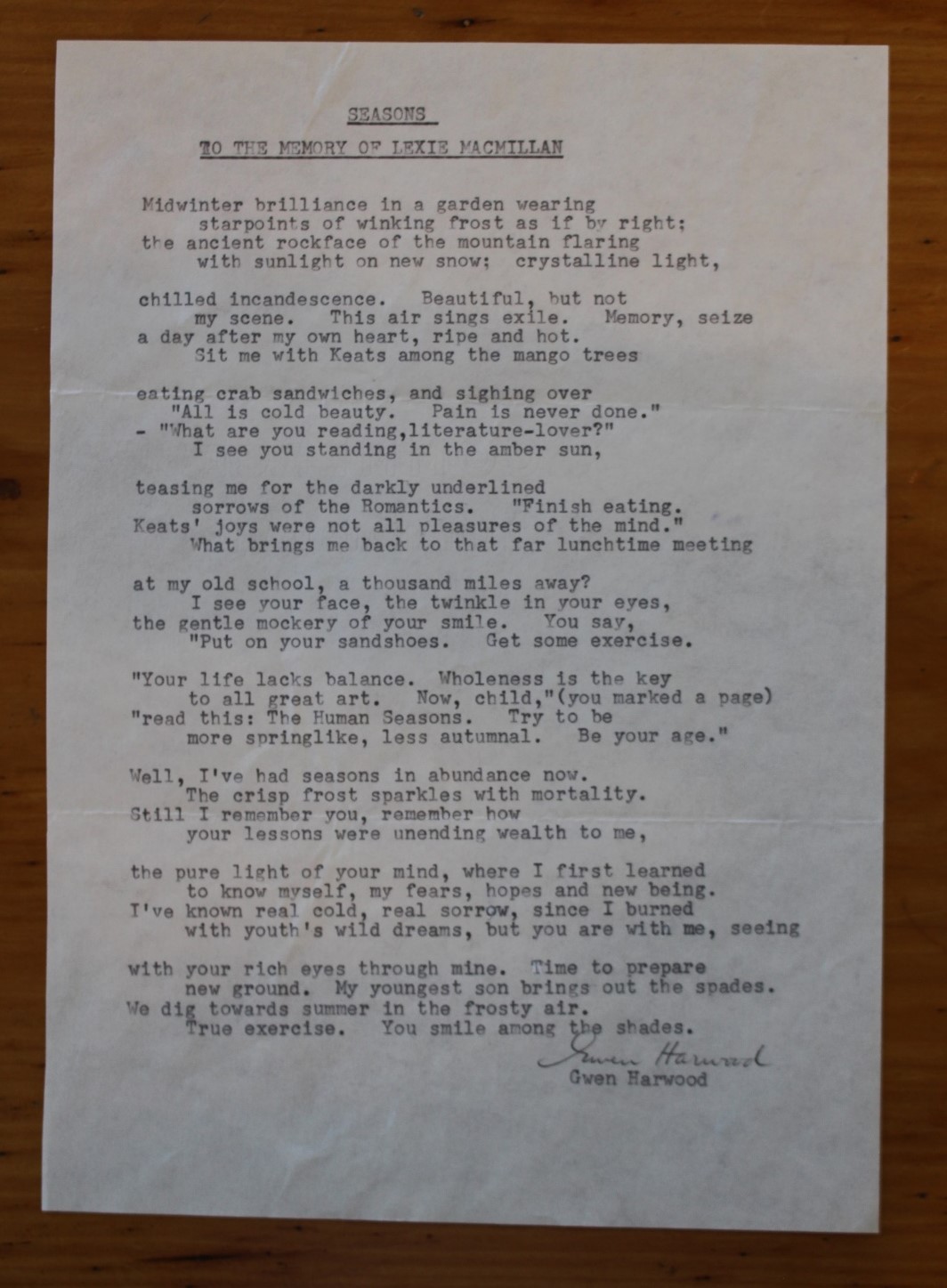
Image of Gwen Harwood's original poem


